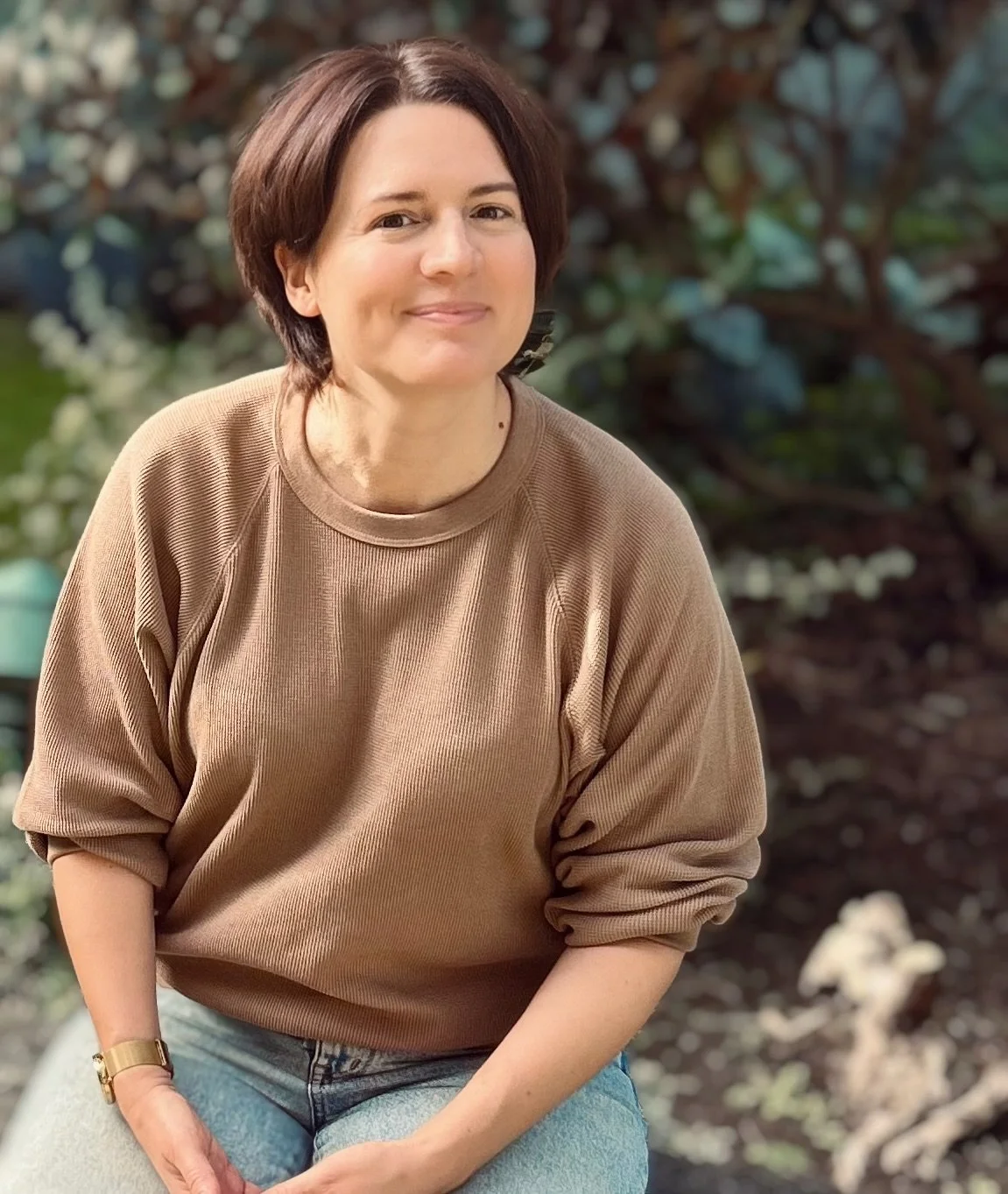What kind of counselling do you offer?
I offer individual counselling for teens and adults, and relationship therapy for partners. My approach is psychodynamic and relational, and I also bring in tools from narrative, feminist, family systems, dialectical behaviour therapy (DBT), cognitive-behavioural therapy (CBT), and motivational interviewing approaches.
I specialize in working with anxiety, stress, depression, relationship challenges, life transitions and complex grief.
Where are you located? Where do you practice?
I work in person and remotely on unceded Musqueam, Squamish, and Tsleil-Waututh territory in downtown Vancouver, British Columbia.
I see clients in-person at my office in the Electra Building, 970 Burrard Street.
I also offer telehealth/online counselling to people residing across British Columbia and in some other parts of Canada on a case-by-case basis. I am also licensed as an LMHC to serve New York State residents.
How can I get to your office? Is there parking?
The Electra Building location is a short walk from both the Burrard and Granville Skytrain stations. If you are biking, there is an outdoor bike rack directly outside the front entrance.
If you are driving, there is metered street parking on Burrard & Nelson, and metered parking along the Electra roundabout.
What do you charge? Do you direct bill insurance?
50 minute sessions are $175 CAD. Initial intake sessions run 60 minutes and are $200. Partner sessions are also 60 minutes/$200.
I offer a free 15-minute initial consultation to see if we seem like a good match to work together.
Counselling sessions are covered by most extended benefits plans. I offer direct billing with the following insurance companies:
AGA Financial Group Inc.
Alberta Blue Cross
belairdirect
Beneva Inc.
BPA - Benefit Plan Administrators
CanadaLife and Canada Life PSHCP
Canadian Construction Workers Union
Chamber of Commerce Group Insurance
CINUP
ClaimSecure
Cowan
Equitable
First Canadian
GMS Carrier 49 and 50
GroupHEALTH
GroupSource
Industrial Alliance
Johnston Group Inc.
LiUNA Local 183 & 506
Manion
Manulife Financial
Maximum Benefit
Pacific Blue Cross
People Corporation
Simply Benefits
TELUS AdjudiCare
Union Benefits
UV Insurance
For other providers, I am happy to provide a receipt for you to submit for insurance reimbursement. Unfortunately, MSP does not cover private psychotherapy with RCCs.
If you are seeking free or low-fee psychodynamic therapy, you might be interested in connecting with the Psychosocial Foundation Clinic. I offer some low-fee teletherapy spots as a part of the Clinic.
What are your qualifications?
I am registered with the BCACC to practice as a Registered Clinical Counsellor in British Columbia (#14001). I am also licensed with New York State as a Licensed Mental Health Counselor (#004718).
I completed my MA in Counseling Psychology at Northwestern University. I have almost 20 years of experience providing psychotherapy, working at nonprofit agencies, in the public health system, and in private practice. I’ve trained in and practiced utilizing a number of evidence-based modalities: Dialectical Behaviour Therapy (DBT), DBT Prolonged Exposure protocols for trauma treatment (DBT-PE), Multi-Systemic Therapy (MST), Emotion-Focused Family Therapy (EFFT), Emotionally-Focused Therapy for Couples (EFT), Motivational Interviewing (MI), Cognitive Behavioural Therapy (CBT), narrative therapy and the Gottman Method. I’ve also pursued psychodynamic training at New York’s Mitchell Center for Relational Studies, including completing the 1-year introductory program in relational psychotherapy, and additional seminars by Muriel Dimen and Barry Magid.
My diverse training allows me to think across different theories of change and draw from a number of evidence-based modalities based on each individual client and the types of approaches that resonate with them.
What are your privacy protections?
I offer Telehealth appointments through a secure, Canadian-based platform. All of my medical records are held in a Canadian-based PIPEDA and HIPAA compliant medical records software, which stores its data on Canadian servers. I do not bring clinical files in digital or paper form into the United States.
Do you use AI (Artificial Intelligence) in your practice?
I do not allow AI to listen in on or summarize therapy or supervision sessions, and I don’t utilize it for writing notes, creating website copy, or in any other part of my practice.
I choose not to use AI for a number of reasons: concerns about the theft of creative work by AI tools; its involvement in the destruction of economic opportunities for artists and writers; privacy concerns related to personal data; the failure of these tools to adequately address bias related to race, gender, and disability; the default into a both-sides, aggressively moderate style of thinking in AI intellectual products that fails to consider all possibilities; and the environmental impact of AI (including its impact on how conversations about climate change are structured).
Hey, don’t I know you from (public health organization)?
It makes my day to get updates or quick notes from previous clients. If this is you—hi! Thanks for checking out my website. If you want to reach out, it’s best to contact me through the organization where we worked together.
If you are looking for a private counsellor now, you might find it helpful to use the BCACC Find a Counsellor tool.
